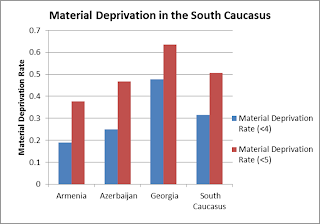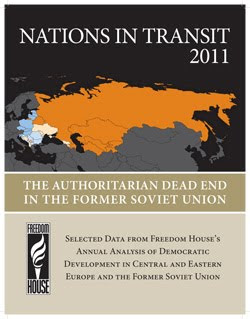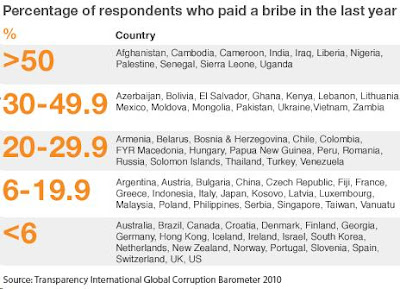
Material deprivation is a non-monetary measure of poverty which measures ownership of durable goods considered valuable by a society for a good standard of living. The CRRC’s 2010 Caucasus Barometer provides a limited assessment of material deprivation by measuring household…




